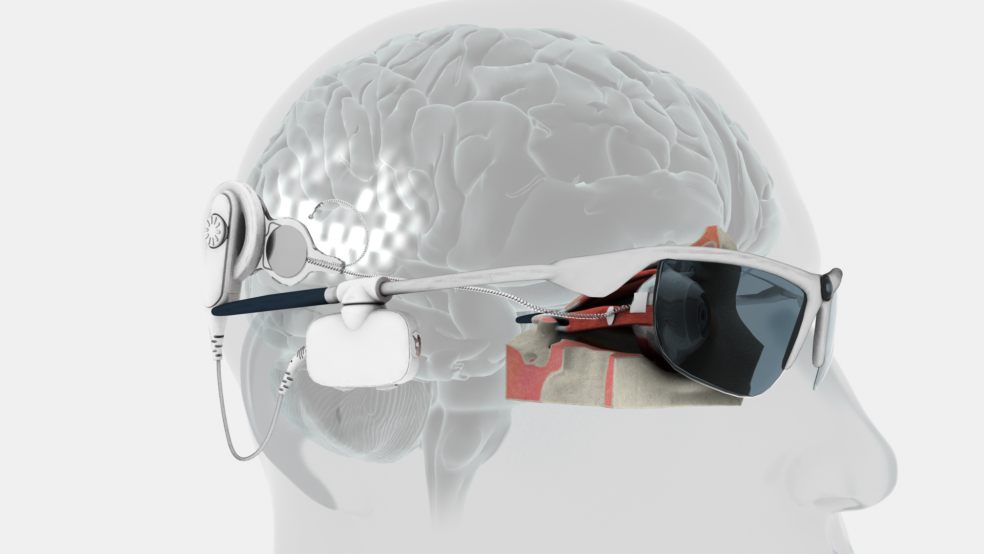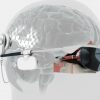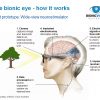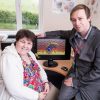
Exeter to welcome Visual Impairment experts
On 2 July 2015, Visual Impairment (VI) experts from around the world are set to share advances in leading-edge research at the fourth annual WESC Foundation International Conference in Exeter. From the latest developments in medical technology, such as bionic eyes to help combat retinal eye disease, to ground-breaking design of Smart-Glasses designed to assist visually impaired people in navigating every-day obstacles, researchers will reveal the latest developments to an audience of education, healthcare and SEN professionals.
Keynote speaker at the Conference will be Dr Lauren Ayton, Bionic Eye Clinical Research Coordinator at the University of Melbourne. Dr Ayton will be discussing advances in medical technology and the development of vision restoration treatments such as stem cells, gene therapy and bionic eyes – set to become more common in the future. Dr Ayton will be revealing results of the recent Bionic Vision Australia Clinical trial of a retinal prosthesis, which can combat hereditary retinal eye disease and age-related macular degeneration.
Worthy of one of the special gadgets from a Mission Impossible or James Bond movie, Dr Stephen Hicks, will be showcasing the latest prototype of his assisted vision and Smart-Glasses research project. Research Fellow in Neuroscience and Visual Prosthetics at Oxford University, Dr Hicks says: “The idea of the Smart-Glasses is to give people with poor vision an aid that boosts their awareness of what's around them – allowing greater freedom, independence and confidence to get about, and a much-improved quality of life. We eventually want to have a product that will look like a regular pair of glasses and cost no more than a few hundred pounds – about the same as a smart phone”.
Returning to the Conference for a second year, Dr Fiona Rowe, a Reader in Health Services Research at the University of Liverpool, will be discussing her research that reveals a lack of support for stroke survivors with visual impairment. Her findings highlight the need for health care services to be fully aware of visual problems after stroke, and provide patients with the best possible support.
Over the last two years, WESC Foundation’s own research department, headed up by Research Scientist Dr Jonathan Waddington, has been designing and developing an engaging computer game aimed at improving the functional vision of young people with cortical visual impairment. At this year’s annual conference, Dr Waddington will present findings from the development of the game, and from a pilot study during which visually impaired players were given the game to play at home for three weeks.
Tracy de Bernhardt Dunkin, Principal & Chief Executive at WESC Foundation says: “WESC’s Annual International Conference always provides an excellent opportunity for bringing together visual impairment knowledge from specialist international speakers to those directly and indirectly impacted or affected by visual impairment. We look forward to welcoming back some familiar faces from past conferences as well as meeting new people working in the field of visual impairment.”
There are an estimated 25,000 blind and partially sighted children in the UK needing specialist educational support (that’s one in every 500 children. Evidence suggests that cerebral visual impairment (visual impairment caused by brain injury) is the most common cause of visual impairment in these children. It is also estimated that the number of people living with sight loss in the UK is set to rise dramatically from 1.865,900 (2011) to 2,269,700 in 2020, making the research increasingly important. This is why WESC Foundation is such an advocate of pushing the boundaries of research and development.
During the conference, WESC Foundation will welcome SEN and healthcare professionals with a particular interest in visual impairment, carers, representatives from local authorities, specialist schools and college, all with the aim of increasing their understanding about neuroscience, as well as keeping up-to-date with developments in the field.
The Conference will run from 09.30am and close at 4.45pm.
WESC Foundation provides education for nearly 100 blind or visually impaired young people and adults and is at the forefront in the development of visual neuroscience technology. The services provided by the organisation ensure students experience the widest possible range of services in education, care, therapies, and mobility, as well as gaining greater independence.
Anyone wishing to attend the conference or find out further information about WESC Foundation should contact Katy Gaulton on kgaulton@wescfoundation.co.uk or 01392 454200.





















